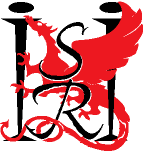
Institute for Software Research
School of Computer Science, Carnegie Mellon University
Bayesian Mixed-Membership Models
of Complex and Evolving Networks
Edoardo Maria Airoldi
December 2006
Ph.D. Thesis (COS)
Over the past three years I have been working on probabilistic models
of multivariate attributes and relations. My work suggests a probabilistic
framework and a general modeling approach to complex and evolving networks,
which is based on the four concepts of mixed membership, motifs, dynamics and
integration. In this thesis, I present such a framework and discuss its
properties. In particular, the main goal of the research is to establish
the essential elements of formal models of complexity that reconcile the
global properties of a system with local phenomena of interest, in a
generative fashion.
A solution to the global/local trade-off is to express complexity through hierarchical mixtures of simple patterns, i.e., motifs, that evolve over time. Complex global behavior emerges from the combination of local interaction patterns and their dynamics. I discuss the extent to which this novel framework incorporates, generalizes, and extends other probabilistic approaches present in the literature, and argue that it provides the foundations of a statistical theory of random graphs.
A major part of the effort is devoted to the analysis of modeling issues related to the four essential aspects listed above, in the context of applications to social and biological networks. I also investigate theoretical and computational issues such as the geometrical intuition of the latent allocation task–an important inference objective shared by the various models encompassed by this framework.
233 pages
Return to:
SCS Technical Report Collection This page maintained by [email protected]
School of Computer Science homepage